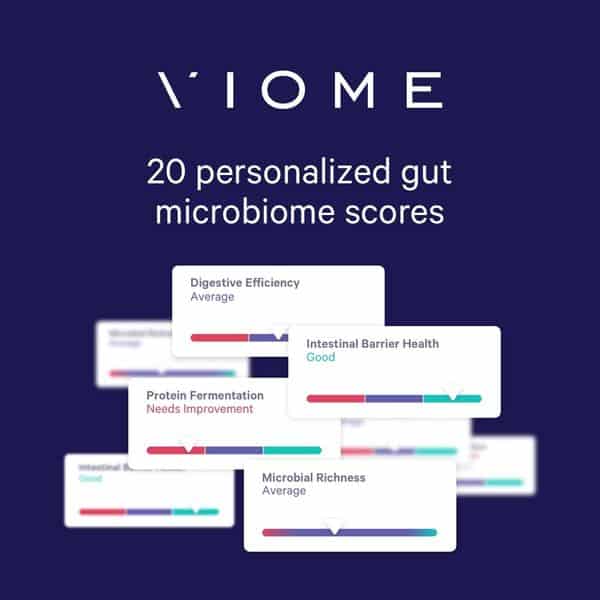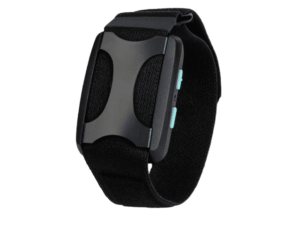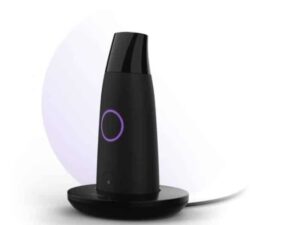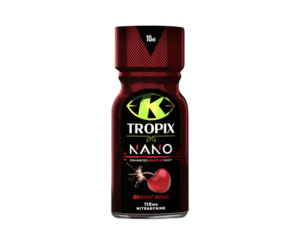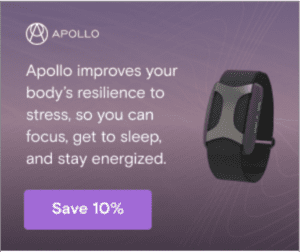Ketosis has become an incredibly popular diet trend over the last few years. But is it actually good for your brain? As a certified Functional Nutritional Therapy Practitioner, I’m often asked if entering a state of ketosis can impact cognitive function and mental health.
The short answer – it’s complicated. Research shows there may be some brain health benefits to ketosis, but also some potential downsides to consider.
In this article, I’ll break down the latest science and help you understand the pros and cons of ketosis for your noggin. Buckle up – we’re going on a journey into the ketogenic world for the mind!
Biohack Your Brainpower
What is Ketosis Exactly?
Before we dive in, let’s quickly cover the basics of what ketosis actually is.
When you severely restrict carb intake for an extended period of time, your body eventually enters a metabolic state called ketosis (or nutritional ketosis). This means your body has switched from primarily burning carbohydrates to burning fats and ketones for fuel instead.1Cahill GF. Fuel metabolism in starvation. Annu Rev Nutr. 2006;26:1-22. [https://pubmed.ncbi.nlm.nih.gov/16848698/]
Learn More: 11 Best Nootropics For Ultra-Efficient Intermittent Fasting!
Ketosis should not be confused with the dangerous condition ketoacidosis seen in type 1 diabetics. Nutritional ketosis causes mild blood ketone elevations (0.5 – 5.0 mM) without disruptions in blood pH.2Newman JC, Verdin E. Ketone bodies as signaling metabolites. Trends Endocrinol Metab. 2014;25(1):42-52. [https://pubmed.ncbi.nlm.nih.gov/24140022/]
Now that we know what it is let’s look at some of the proposed ways ketosis may influence brain health and function.
Potential Pros of Ketosis for the Brain
1. Enhanced Cognitive Performance
Some research indicates ketosis enhances certain domains of cognitive performance like working memory, executive function, and processing speed.3Krikorian R, Shidler MD, Dangelo K, Couch SC, Benoit SC, Clegg DJ. Dietary ketosis enhances memory in mild cognitive impairment. Neurobiol Aging. 2012;33(2):425.e19-425.e27. [https://www.ncbi.nlm.nih.gov/pmc/articles/PMC3116949/]
Potential mechanisms may include:
- Increased availability of ketones as fuel for the brain4Augustin K, Khabbush A, Williams S, et al. Mechanisms of action for the medium-chain triglyceride ketogenic diet in neurological and metabolic disorders. Lancet Neurol. 2018;17(1):84-93. [https://pubmed.ncbi.nlm.nih.gov/29263011/]
- Reductions in brain inflammation5Hallböök T, Ji S, Maudsley S, Martin B. The effects of the ketogenic diet on behavior and cognition. Epilepsy Res. 2012 Jul;100(3):304-9. [https://www.ncbi.nlm.nih.gov/pmc/articles/PMC4112040/]
- Improved neuronal signaling
However, study results have been mixed overall when looking at the cognitive impacts of ketosis in healthy populations. More research is still needed on these potential brain benefits.
Learn More: Top 5 Best Nootropic Drinks For Energy, Focus, and Productivity!
2. Neuroprotective Effects
Ketosis has been shown to reduce oxidative stress and inflammation in the brain while enhancing mitochondrial function.6Augustin K, Khabbush A, Williams S, et al. Mechanisms of action for the medium-chain triglyceride ketogenic diet in neurological and metabolic disorders. Lancet Neurol. 2018;17(1):84-93. [https://pubmed.ncbi.nlm.nih.gov/29263011/] Through these mechanisms, maintaining nutritional ketosis over the years may offer protection against cognitive decline and neurodegenerative diseases like Alzheimer’s.
Learn More: The 9 Best Nootropics For Memory
Animal studies also demonstrate ketones block the toxic effects of amyloid-beta protein accumulation in the brain, a hallmark of Alzheimer’s disease.7Augustin K, Khabbush A, Williams S, et al. Mechanisms of action for the medium-chain triglyceride ketogenic diet in neurological and metabolic disorders. Lancet Neurol. 2018;17(1):84-93. [https://pubmed.ncbi.nlm.nih.gov/29263011/] But we need more human clinical trials to confirm if ketosis can truly prevent dementia long-term.
3. Improved Mental Health
For some people, a ketogenic diet can significantly improve symptoms of depression and anxiety8Krikorian R, Shidler MD, Dangelo K, Couch SC, Benoit SC, Clegg DJ. Dietary ketosis enhances memory in mild cognitive impairment. Neurobiol Aging. 2012;33(2):425.e19-425.e27. [https://pubmed.ncbi.nlm.nih.gov/21130529/](https://pubmed.ncbi.nlm.nih.gov/21130529/). Multiple factors likely play a role here, including reduced brain inflammation, balanced neurotransmitter levels, and increased BDNF levels, which support nerve cell health.
Anecdotal reports also suggest ketosis alleviates mood disorders, OCD tendencies, and addictive behaviors in certain populations. But again – we need large-scale human trials to validate these mental health benefits.
4. Other Potential Perks
- Accelerated recovery from traumatic brain injury (TBI)
- Reduced migraine frequency9Chawla S, Silva FT, Medeiros SA, Mekary RA, Radenkovic D. The Effect of Low-Fat and Low-Carbohydrate Diets on Weight Loss and Lipid Levels: A Systematic Review and Meta-Analysis. Nutrients. 2020;12(12):3774. doi:10.3390/nu12123774. [https://www.mdpi.com/2072-6643/12/12/3774]
- Seizure control in epilepsy10Polito R, Barnabe GF, Colamarco F, et al. The ketogenic diet in pharmacoresistant childhood epilepsy. Expert Rev Neurother. 2021 Dec;21(12):1349-1360. [https://pubmed.ncbi.nlm.nih.gov/34739680/]
However, most evidence for these benefits of ketosis on the brain currently stems from animal research or small pilot studies.
Potential Cons of Ketosis for the Brain
1. Nutrient Deficiencies
Restricting carbs long-term increases your risk for certain micronutrient deficiencies related to brain health since many carb sources provide vitamins and minerals.[12]
Without adequate intake of veggies and low-carb fruits, ketosis could negatively impact cognition. That’s why it’s essential to supplement appropriately on keto.
Learn More: Best Adderall Replacement Nootropics for 2023
2. Negative Short-Term Cognition Effects
Some people report brain fog and impaired cognition during the “keto flu” phase while initially adapting to ketosis. Factors like dehydration, electrolyte imbalances, and low glycogen likely contribute during this transitional state.
Luckily, these negative cognitive effects seem to resolve within 1-2 weeks once the body fully adapts to burning fats and ketones. Supporting electrolytes can also help minimize brain fog symptoms.11Krebs JD, Bell D, Hall R, Parry-Strong A. Improvements in Glucose Metabolism and Insulin Sensitivity with a Low-Carbohydrate Diet in Obese Patients with Type 2 Diabetes. J Am Coll Nutr. 2013;32(1):11-17. doi:10.1080/07315724.2013.767630. [https://www.researchgate.net/publication/256477876_Improvements_in_Glucose_Metabolism_and_Insulin_Sensitivity_with_a_Low-Carbohydrate_Diet_in_Obese_Patients_with_Type_2_Diabetes]
3. Insufficient Long-Term Safety Data
Perhaps the biggest drawback of ketogenic diets for the brain is the lack of large-scale, long-term, randomized controlled trials in humans. Small studies suggest both benefits and potential risks.
But we need longer trials to determine the consequences of sticking to very low-carb diets for years on brain health, cognition, and mental wellness. Monitoring these impacts closely with a healthcare practitioner is recommended.
Who Might Benefit from Ketosis?
Based on the current evidence, here are some populations that may achieve cognitive and mental health benefits from a well-formulated ketogenic diet under medical guidance:
- Those with MCI, Alzheimer’s disease, or a family history of neurodegenerative disease12Krikorian R, Shidler MD, Dangelo K, Couch SC, Benoit SC, Clegg DJ. Dietary ketosis enhances memory in mild cognitive impairment. Neurobiol Aging. 2012;33(2):425.e19-425.e27. [https://pubmed.ncbi.nlm.nih.gov/21130529/]
- Individuals with mood disorders like depression and anxiety
- People with epilepsy or migraine disorders13Polito R, Barnabe GF, Colamarco F, et al. The ketogenic diet in pharmacoresistant childhood epilepsy. Expert Rev Neurother. 2021 Dec;21(12):1349-1360. [https://pubmed.ncbi.nlm.nih.gov/34739680/]
- Endurance athletes seeking a cognitive edge
For these groups, potential neuroprotective and anti-inflammatory effects could outweigh the risks. But work closely with your medical provider when implementing dietary changes like ketosis just to be safe.
Ketosis for the Brain: Key Takeaways
Research indicates possible cognitive and mental health benefits to ketosis, such as enhanced memory, reduced dementia risk, and improved mood14Krikorian R, Shidler MD, Dangelo K, Couch SC, Benoit SC, Clegg DJ. Dietary ketosis enhances memory in mild cognitive impairment. Neurobiol Aging. 2012;33(2):425.e19-425.e27. https://pubmed.ncbi.nlm.nih.gov/21130529/
However, some people may experience initial brain fog adjusting to ketosis during “keto flu.” Long-term impacts also remain understudied15Krebs JD, Bell D, Hall R, Parry-Strong A. Improvements in Glucose Metabolism and Insulin Sensitivity with a Low-Carbohydrate Diet in Obese Patients with Type 2 Diabetes. J Am Coll Nutr. 2013;32(1):11-17. doi:10.1080/07315724.2013.767630. https://www.researchgate.net/publication/256477876_Improvements_in_Glucose_Metabolism_and_Insulin_Sensitivity_with_a_Low-Carbohydrate_Diet_in_Obese_Patients_with_Type_2_Diabetes
Certain populations, like those with neurodegenerative disease risk, mood disorders, or endurance athletes, may stand to benefit most from a ketogenic diet16Krikorian R, Shidler MD, Dangelo K, Couch SC, Benoit SC, Clegg DJ. Dietary ketosis enhances memory in mild cognitive impairment. Neurobiol Aging. 2012;33(2):425.e19-425.e27. https://pubmed.ncbi.nlm.nih.gov/21130529/
Work with a functional nutrition practitioner to implement ketosis safely and monitor your nutrient status, mental health, and cognition closely.
Have you experimented with ketosis? Did you notice any positive or negative effects on your brain health or thinking skills? Share your experiences below!
Where to Buy Ketosis Support Supplements
Where to Buy Ketosis Support Supplements
To aid ketosis and maximize potential brain health benefits, here are some top-rated supplements to consider:
Here are 30 supplements that would be good for someone on a keto diet, along with a brief explanation of why each one is beneficial:
Kapex Keto Digestive Enzymes – Enhance your keto experience with BiOptimizers Kapex, providing digestive enzymes tailored for ketogenic and low-carb diets.
Magnesium Breakthrough – BiOptimizers Magnesium Breakthrough provides a comprehensive blend of magnesium types for improved sleep, stress relief, and muscle recovery on keto.
Masszymes – This powerful blend of digestive enzymes from BiOptimizers enhances nutrient absorption and digestive efficiency, which is important on a high fat keto diet.
Masszymes Free Trial – Try BiOptimizers Masszymes for free and experience the benefits of improved digestion and nutrient absorption with their advanced enzyme formula while on the keto diet.
Freshcap Lion’s Mane Mushroom Powder – This Lion’s Mane mushroom powder is an all-natural cognitive enhancer, promoting brain health, focus, and nerve growth while on a ketogenic diet.
Nutrisense Quiz – Take this personalized quiz from Nutrisense to get guidance on choosing the right nutritional approach for your keto journey.
Nutrisense – Nutrisense offers innovative continuous glucose monitoring solutions, providing real-time data to optimize your keto diet and lifestyle.
Magnesium Breakthrough Detailed – Discover the detailed benefits of BiOptimizers Magnesium Breakthrough, offering a full spectrum of magnesium forms to support health on a ketogenic diet.
DoubleWood Berberine – Berberine from DoubleWood supports blood sugar regulation and longevity, making it an excellent keto supplement.
Leaky Gut Guardian – BiOptimizers’ Leaky Gut Guardian is specifically formulated to support gut health and digestion on a ketogenic diet.
Gluten Guardian – BiOptimizers Gluten Guardian contains enzymes to aid digestion of gluten and carbohydrates for improved gut health on keto.
Blood Sugar Breakthrough – This supplement from BiOptimizers helps regulate blood sugar levels which need to be kept low on a ketogenic diet.
Glycanage – This unique biological age test uses glycans to assess lifestyle impacts and recommend personalized nutrition for your keto journey.
Nootropics Depot Magnesium Glycinate – Glycinate is a highly bioavailable magnesium that enhances cognitive function and bone health on a keto diet.
Whoop – The Whoop fitness tracker provides insights into strain, recovery and sleep to optimize your keto health regimen.
NutrisenseCGM – Nutrisense’s CGM tracks glucose levels to understand metabolic impacts of keto and dial in your diet.
LettGetChecked – These at-home health tests measure relevant biomarkers to monitor the effects of a ketogenic diet.
Biome Breakthrough – This ultimate microbiome support from BiOptimizers enhances gut health and digestion, crucial on a high fat keto diet.
Apollobrain – The Apollo wearable device helps mitigate brain fog and stress that may occur when transitioning into ketosis.
Nootropics Depot ALCAR – ALCAR provides energy and cognitive support, helping to fuel both body and mind in a low-carb state.
Nootropics Depot Melatonin – Melatonin regulates sleep cycles, which can be disrupted on a ketogenic diet.
Nootropics Depot Vitamin D3 + K2 – This vitamin combo supports bone health, important on a diet relatively lower in calcium.
Nootropics Depot NAC – NAC provides antioxidant support and aids detoxification, helpful when burning fats.
Nootropics Depot Green Tea Extract – This antioxidant-rich supplement aids weight loss and cognition on keto diets.
Nootropics Depot Longvida Curcumin – Curcumin relieves inflammation and oxidative damage that may accompany fat loss.
HCL Breakthrough – This betaine HCL supplement improves protein digestion and absorption.
Hello 100 NMN – NMN boosts NAD+ to support cellular energy production using ketones and fats.
MudWtr – This mushroom coffee alternative provides energy and antioxidants without disrupting ketosis.
BonBuz – BonBuz offers a unique alcohol alternative supporting ketosis and fat burning.
FAQs
Is ketosis safe long-term?
Much more research is still needed on the long-term impacts of ketosis. There may be both benefits and potential risks over the years. Monitoring health markers with a medical practitioner is wise.
Doesn’t ketosis negatively impact cholesterol?
Some people do see shifts in LDL and HDL on keto diets. But particle size seems to improve for most. Consult your doctor and have advanced cholesterol testing done.
Do you need to supplement on a ketogenic diet?
Yes, micronutrient supplementation is critical since many vitamins and minerals come from restricted-carb foods. Omega-3s and electrolytes are especially important.17Chawla S, Silva FT, Medeiros SA, Mekary RA, Radenkovic D. The Effect of Low-Fat and Low-Carbohydrate Diets on Weight Loss and Lipid Levels: A Systematic Review and Meta-Analysis. Nutrients. 2020;12(12):3774. doi:10.3390/nu12123774. https://www.mdpi.com/2072-6643/12/12/3774
References
Cahill GF. Fuel metabolism in starvation. Annu Rev Nutr. 2006;26:1-22. https://pubmed.ncbi.nlm.nih.gov/16848698/
Newman JC, Verdin E. Ketone bodies as signaling metabolites. Trends Endocrinol Metab. 2014;25(1):42-52. https://pubmed.ncbi.nlm.nih.gov/24140022/
Krikorian R, Shidler MD, Dangelo K, Couch SC, Benoit SC, Clegg DJ. Dietary ketosis enhances memory in mild cognitive impairment. Neurobiol Aging. 2012;33(2):425.e19-425.e27. https://www.ncbi.nlm.nih.gov/pmc/articles/PMC3116949/
Augustin K, Khabbush A, Williams S, et al. Mechanisms of action for the medium-chain triglyceride ketogenic diet in neurological and metabolic disorders. Lancet Neurol. 2018;17(1):84-93. https://pubmed.ncbi.nlm.nih.gov/29263011/
Hallböök T, Ji S, Maudsley S, Martin B. The effects of the ketogenic diet on behavior and cognition. Epilepsy Res. 2012 Jul;100(3):304-9. https://www.ncbi.nlm.nih.gov/pmc/articles/PMC4112040/
Chawla S, Silva FT, Medeiros SA, Mekary RA, Radenkovic D. The Effect of Low-Fat and Low-Carbohydrate Diets on Weight Loss and Lipid Levels: A Systematic Review and Meta-Analysis. Nutrients. 2020;12(12):3774. doi:10.3390/nu12123774. https://www.mdpi.com/2072-6643/12/12/3774
Polito R, Barnabe GF, Colamarco F, et al. The ketogenic diet in pharmacoresistant childhood epilepsy. Expert Rev Neurother. 2021 Dec;21(12):1349-1360. https://pubmed.ncbi.nlm.nih.gov/34739680/
Krikorian R, Shidler MD, Dangelo K, Couch SC, Benoit SC, Clegg DJ. Dietary ketosis enhances memory in mild cognitive impairment. Neurobiol Aging. 2012;33(2):425.e19-425.e27. https://pubmed.ncbi.nlm.nih.gov/21130529/
Krebs JD, Bell D, Hall R, Parry-Strong A. Improvements in Glucose Metabolism and Insulin Sensitivity with a Low-Carbohydrate Diet in Obese Patients with Type 2 Diabetes. J Am Coll Nutr. 2013;32(1):11-17. doi:10.1080/07315724.2013.767630. https://www.researchgate.net/publication/256477876_Improvements_in_Glucose_Metabolism_and_Insulin_Sensitivity_with_a_Low-Carbohydrate_Diet_in_Obese_Patients_with_Type_2_Diabetes
- 1Cahill GF. Fuel metabolism in starvation. Annu Rev Nutr. 2006;26:1-22. [https://pubmed.ncbi.nlm.nih.gov/16848698/]
- 2Newman JC, Verdin E. Ketone bodies as signaling metabolites. Trends Endocrinol Metab. 2014;25(1):42-52. [https://pubmed.ncbi.nlm.nih.gov/24140022/]
- 3Krikorian R, Shidler MD, Dangelo K, Couch SC, Benoit SC, Clegg DJ. Dietary ketosis enhances memory in mild cognitive impairment. Neurobiol Aging. 2012;33(2):425.e19-425.e27. [https://www.ncbi.nlm.nih.gov/pmc/articles/PMC3116949/]
- 4Augustin K, Khabbush A, Williams S, et al. Mechanisms of action for the medium-chain triglyceride ketogenic diet in neurological and metabolic disorders. Lancet Neurol. 2018;17(1):84-93. [https://pubmed.ncbi.nlm.nih.gov/29263011/]
- 5Hallböök T, Ji S, Maudsley S, Martin B. The effects of the ketogenic diet on behavior and cognition. Epilepsy Res. 2012 Jul;100(3):304-9. [https://www.ncbi.nlm.nih.gov/pmc/articles/PMC4112040/]
- 6Augustin K, Khabbush A, Williams S, et al. Mechanisms of action for the medium-chain triglyceride ketogenic diet in neurological and metabolic disorders. Lancet Neurol. 2018;17(1):84-93. [https://pubmed.ncbi.nlm.nih.gov/29263011/]
- 7Augustin K, Khabbush A, Williams S, et al. Mechanisms of action for the medium-chain triglyceride ketogenic diet in neurological and metabolic disorders. Lancet Neurol. 2018;17(1):84-93. [https://pubmed.ncbi.nlm.nih.gov/29263011/]
- 8Krikorian R, Shidler MD, Dangelo K, Couch SC, Benoit SC, Clegg DJ. Dietary ketosis enhances memory in mild cognitive impairment. Neurobiol Aging. 2012;33(2):425.e19-425.e27. [https://pubmed.ncbi.nlm.nih.gov/21130529/](https://pubmed.ncbi.nlm.nih.gov/21130529/)
- 9Chawla S, Silva FT, Medeiros SA, Mekary RA, Radenkovic D. The Effect of Low-Fat and Low-Carbohydrate Diets on Weight Loss and Lipid Levels: A Systematic Review and Meta-Analysis. Nutrients. 2020;12(12):3774. doi:10.3390/nu12123774. [https://www.mdpi.com/2072-6643/12/12/3774]
- 10Polito R, Barnabe GF, Colamarco F, et al. The ketogenic diet in pharmacoresistant childhood epilepsy. Expert Rev Neurother. 2021 Dec;21(12):1349-1360. [https://pubmed.ncbi.nlm.nih.gov/34739680/]
- 11Krebs JD, Bell D, Hall R, Parry-Strong A. Improvements in Glucose Metabolism and Insulin Sensitivity with a Low-Carbohydrate Diet in Obese Patients with Type 2 Diabetes. J Am Coll Nutr. 2013;32(1):11-17. doi:10.1080/07315724.2013.767630. [https://www.researchgate.net/publication/256477876_Improvements_in_Glucose_Metabolism_and_Insulin_Sensitivity_with_a_Low-Carbohydrate_Diet_in_Obese_Patients_with_Type_2_Diabetes]
- 12Krikorian R, Shidler MD, Dangelo K, Couch SC, Benoit SC, Clegg DJ. Dietary ketosis enhances memory in mild cognitive impairment. Neurobiol Aging. 2012;33(2):425.e19-425.e27. [https://pubmed.ncbi.nlm.nih.gov/21130529/]
- 13Polito R, Barnabe GF, Colamarco F, et al. The ketogenic diet in pharmacoresistant childhood epilepsy. Expert Rev Neurother. 2021 Dec;21(12):1349-1360. [https://pubmed.ncbi.nlm.nih.gov/34739680/]
- 14Krikorian R, Shidler MD, Dangelo K, Couch SC, Benoit SC, Clegg DJ. Dietary ketosis enhances memory in mild cognitive impairment. Neurobiol Aging. 2012;33(2):425.e19-425.e27. https://pubmed.ncbi.nlm.nih.gov/21130529/
- 15Krebs JD, Bell D, Hall R, Parry-Strong A. Improvements in Glucose Metabolism and Insulin Sensitivity with a Low-Carbohydrate Diet in Obese Patients with Type 2 Diabetes. J Am Coll Nutr. 2013;32(1):11-17. doi:10.1080/07315724.2013.767630. https://www.researchgate.net/publication/256477876_Improvements_in_Glucose_Metabolism_and_Insulin_Sensitivity_with_a_Low-Carbohydrate_Diet_in_Obese_Patients_with_Type_2_Diabetes
- 16Krikorian R, Shidler MD, Dangelo K, Couch SC, Benoit SC, Clegg DJ. Dietary ketosis enhances memory in mild cognitive impairment. Neurobiol Aging. 2012;33(2):425.e19-425.e27. https://pubmed.ncbi.nlm.nih.gov/21130529/
- 17Chawla S, Silva FT, Medeiros SA, Mekary RA, Radenkovic D. The Effect of Low-Fat and Low-Carbohydrate Diets on Weight Loss and Lipid Levels: A Systematic Review and Meta-Analysis. Nutrients. 2020;12(12):3774. doi:10.3390/nu12123774. https://www.mdpi.com/2072-6643/12/12/3774






